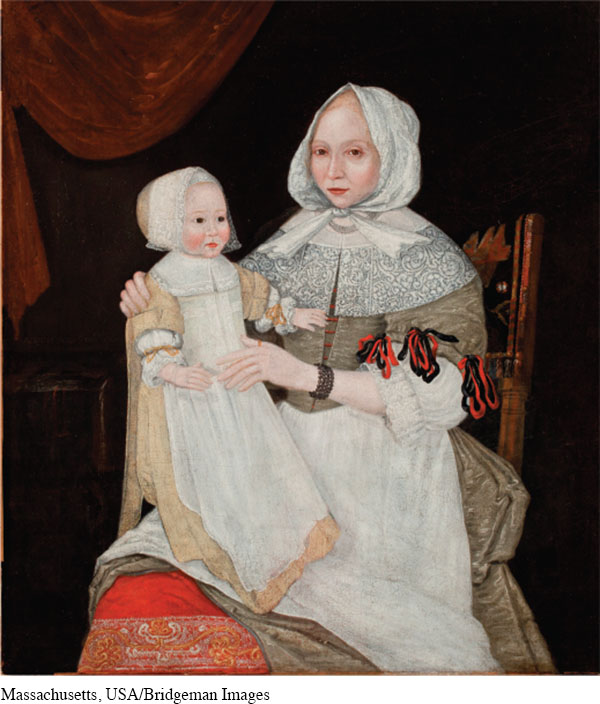The Puritan Worldview

Opposed to the lavish rituals and hierarchy of the Church of England and believing that few Anglicans truly felt the grace of God, Puritans set out to establish a simpler form of worship. They focused on their inner lives and on the purity of their church and community. Puritans followed Calvin, believing in an all-knowing God whose true Word was presented in the Bible. The biblically sanctioned church was a congregation formed by a group of believers who made a covenant with God. Only a small minority of people, known as Saints, were granted God’s grace.
Whether one was a Saint and thereby saved was predetermined by and known only to God. Still, some Puritans believed that the chosen were likely to lead a saintly life. Visible signs included individuals’ passionate response to the preaching of God’s Word, their sense of doubt and despair over their own soul, and that wonderful sense of reassurance that came with God’s “saving grace.” God’s hand in the world appeared in nature as well. Comets and eclipses were considered “remarkable providences.” But so, too was a smallpox epidemic that killed several thousand Massachusetts Indians in 1633–1634 and thereby opened up land for Puritan settlers.
Shared religious beliefs helped forge a unified community where faith guided civil as well as spiritual decisions. While ministers were discouraged from holding political office, political leaders were devout Puritans who were expected to promote a godly society. Such leaders determined who got land, how much, and where; they also served as judge and jury for those accused of crimes or sins. Their leadership was largely successful. Even if colonists differed over who should get the most fertile strip of land, they agreed on basic principles. Still, almost from the beginning, certain Puritans challenged some of the community’s fundamental beliefs and, in the process, the community itself.
Exploring American HistoriesPrinted Page 58
Exploring American Histories Value EditionPrinted Page 45
Chapter Timeline